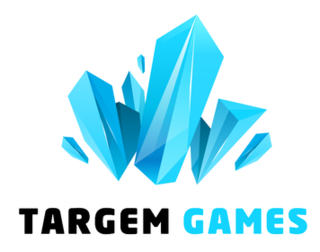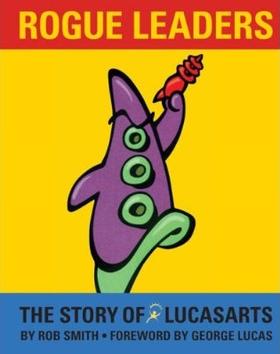Related Research Articles

A video game developer is a software developer specializing in video game development – the process and related disciplines of creating video games. A game developer can range from one person who undertakes all tasks to a large business with employee responsibilities split between individual disciplines, such as programmers, designers, artists, etc. Most game development companies have video game publisher financial and usually marketing support. Self-funded developers are known as independent or indie developers and usually make indie games.

The video game industry is the tertiary and quaternary sectors of the entertainment industry that specialize in the development, marketing, distribution, monetization and consumer feedback of video games. The industry encompasses dozens of job disciplines and thousands of jobs worldwide.

Unreal Engine (UE) is a 3D computer graphics game engine developed by Epic Games, first showcased in the 1998 first-person shooter video game Unreal. Initially developed for PC first-person shooters, it has since been used in a variety of genres of games and has been adopted by other industries, most notably the film and television industry. Unreal Engine is written in C++ and features a high degree of portability, supporting a wide range of desktop, mobiles, console, and virtual reality platforms.

Retro Gamer is a British magazine, published worldwide, covering retro video games. It was the first commercial magazine to be devoted entirely to the subject. Launched in January 2004 as a quarterly publication, Retro Gamer soon became a monthly. In 2005, a general decline in gaming and computer magazine readership led to the closure of its publishers, Live Publishing, and the rights to the magazine were later purchased by Imagine Publishing. It was taken over by Future plc on 21 October 2016, following Future's acquisition of Imagine Publishing.

Traveller's Tales is a British video game developer and a subsidiary of TT Games. Traveller's Tales was founded in 1989 by Jon Burton and Andy Ingram. Initially a small company focused on its own content, it grew in profile through developing games with larger companies such as Sega and Disney Interactive Studios. In 2004, development on Lego Star Wars: The Video Game started with Giant Interactive Entertainment, the exclusive rights holder to Lego video games. Traveller's Tales bought the company in 2005, and the two merged to create TT Games, with Traveller's Tales becoming the new company's development arm.

Nightmare Ned is a 1997 computer game for Microsoft Windows that was developed alongside the animated series of the same name. The game was based on a concept by Sue and Terry Shakespeare. It was released on October 7, 1997.

Mel Croucher is a British entrepreneur and video games pioneer. Originally an architect, he moved into computers and in 1977 launched one of the very earliest games companies, Automata UK, as an extension of his publishing business. He is now credited for setting up "the first games company in the U.K.", celebrated as "the father of the British videogames industry" and presented as "a pioneer in affective computing". His first broadcasts of computer game software were made over AM and FM radio. After the release of the Sinclair ZX81, his label published several games for the early home computer market, including three Computer Trade Association award-winners: Pimania (1982), Groucho, and the groundbreaking "multi-media" title Deus Ex Machina (1984).

Sheri Graner Ray is an American computer game designer. Active since 1990, she has worked for such companies as Electronic Arts, Origin Systems, Sony Online Entertainment, and Cartoon Network, and has worked on such licenses as Star Wars Galaxies, Ultima, and Nancy Drew. She is author of the book Gender Inclusive Game Design-Expanding the Market and is the computer game industry's leading expert on the subject of gender and computer games.
Igromania is a Russian video game website and formerly a magazine.
Within the video game industry there are several awards that are given to individual video games, development studios, and other individuals to recognize their merit. Most video game awards are given out on an annual basis, celebrating the best games of the previous year. Most of these awards come from organizations directly within the industry, but there also exist several that come from broader media groups. In addition, many video game publications supply their own end of the year awards.

Targem Games is a Russian video game developer, based in Yekaterinburg, Russia, geographically in Siberia. Established in 2002, the company has created several PC and console games of various genres. The company received several awards at the Russian Game Developer's Conference, including "Best Debut", "Best Game Design" and "Most innovative project".

Hamlet or the Last Game without MMORPG Features, Shaders and Product Placement is an indie adventure game based on William Shakespeare's Hamlet. It was developed and published by indie game developer Denis Galanin.

Rogue Leaders: The Story of LucasArts is a book about the history of the video game developer and publisher LucasArts, by PlayStation: The Official Magazine's Editor-in-Chief Rob Smith, with a foreword by George Lucas.
Make Something Unreal, also known as $1,000,000 Make Something Unreal Contest and Make Something Unreal Live, was a series of video game development competitions organised by Epic Games which began in 2004, with subsequent competitions in 2008, 2012, and 2013. The contests aimed to reward developers who created mods using the Unreal game engine. Make Something Unreal has not returned since the event in 2013. Epic Games has since launched Epic MegaGrants, a grant based scheme, in 2019.

Leigh Alexander is an American author, journalist, and video game writer. She is the former editor-at-large and news editor for Game Developer, and former editor-in-chief for the revived Boing Boing website Offworld. She has writing credits on the games Reigns: Her Majesty and Reigns: Game of Thrones.
Video game journalism is a branch of journalism concerned with the reporting and discussion of video games, typically based on a core "reveal–preview–review" cycle. With the prevalence and rise of independent media online, online publications and blogs have grown.
Video gaming is a growing sector in Colombia. The medium has been popular in the country since the 1980s, but little local development had taken place until the turn of the 21st century. As the country has been producing many engineers since the early 2010s, many of which specialized in electronics, industry and information technology, the local video game industry has been booming.
Video gaming in Finland consists of video game industry of 260 active video game developer studios, roughly a dozen professional players and countless enthusiastic amateurs.

The Franz Kafka Videogame is an indie adventure game inspired by the writings of Franz Kafka. It was developed by Denis Galanin.
Wolfgang Engel is a videogame designer. He is the founder and CEO of Confetti. Previously he also worked as the Lead Graphics Programmer for Rockstar Games. He is also the founder and editor of ShaderX and GPU books series.
References
- 1 2 "How Games Are Made. Interview Denis Galanin". kdicast.com (in Russian). 29 October 2012.
- ↑ "Interview Denis Galanin". Engadget . 23 June 2010.
- ↑ "Existential dread achievement unlocked! It's the 'Franz Kafka Videogame'". NBC News. 2013-12-04. Retrieved 2024-02-19.
- ↑ Schuman, Rebecca (2014-01-28). "What the Kafka Video Game Should Really Be Like". Slate. ISSN 1091-2339 . Retrieved 2024-02-19.
- 1 2 "How I created the only children's book about the video game industry". Game Developer .
- ↑ "Level Up 2015 Judges". intel.com. Archived from the original on 2015-11-27. Retrieved 2024-01-07.
{{cite web}}: CS1 maint: bot: original URL status unknown (link) - ↑ Webber, Jordan Erica (20 August 2015). "Intel Level Up contest winners feature Kafka, reincarnation". PC Gamer .
- ↑ "Computerspiele". dla-marbach.de.
- ↑ "Best STEM Books Published in 2022". NSTA .